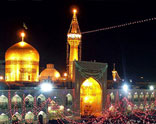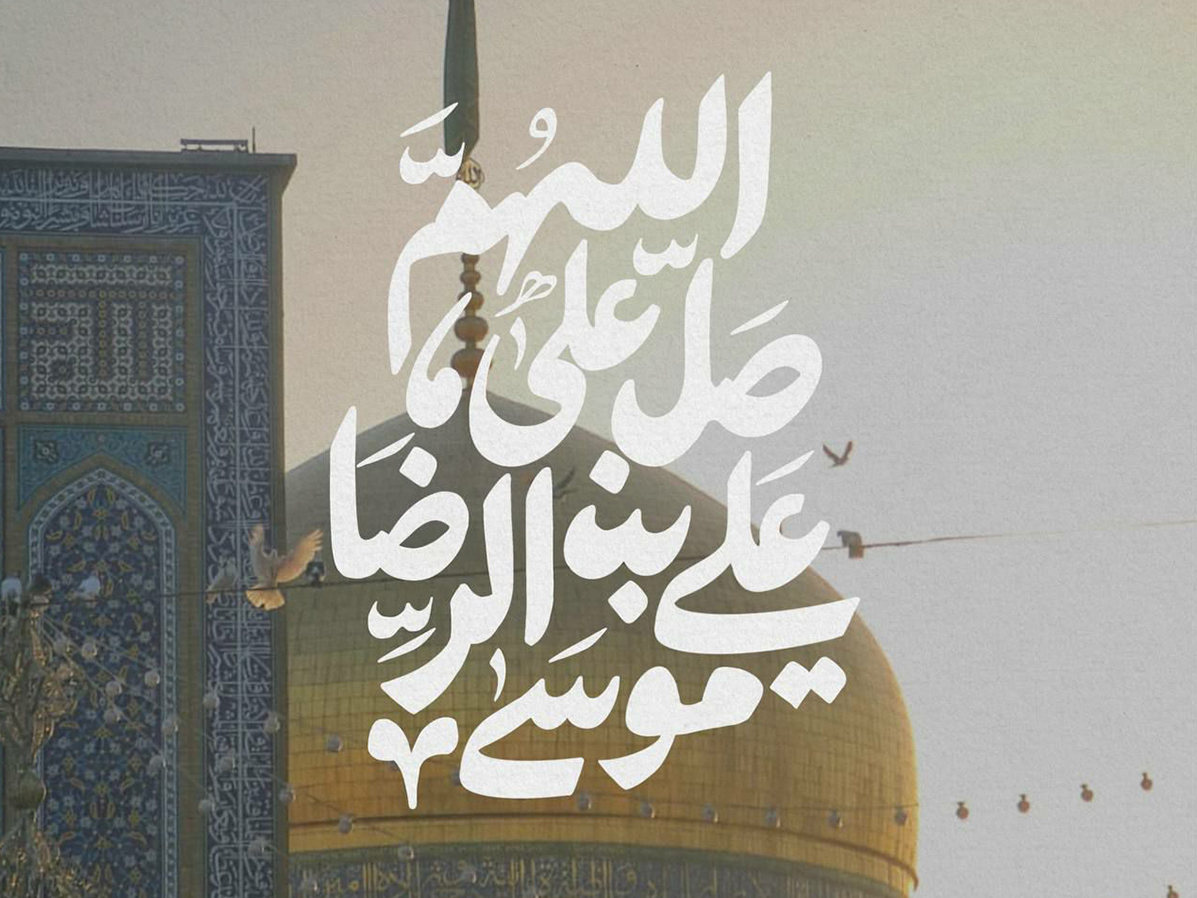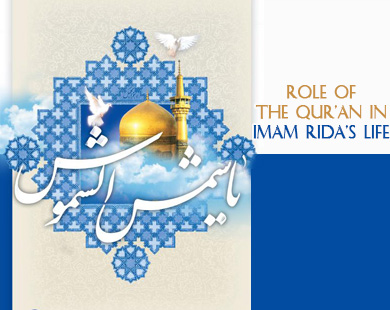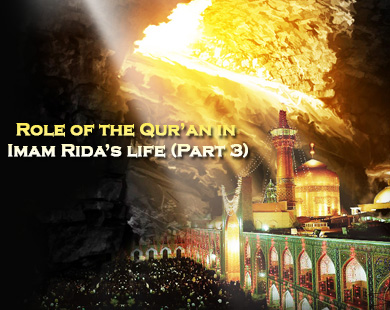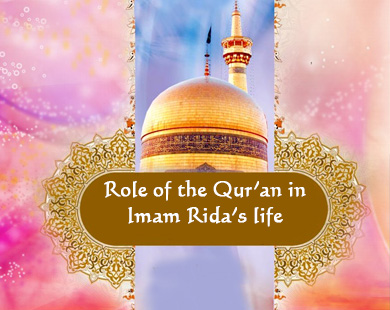Abdullah ibn al-Salt quotes a man from Balkh saying: "I accompanied Imam Rida (A.S) during his trip to Khorassan. One day he ordered preparations for his meal to which he invited all his attendants, blacks and non-blacks, so I said: May my life be sacrificed for yours! Maybe these should have a separate eating arrangement.'
He said: God Almighty is one; the father (Adam) and the mother (Eve) are the same, and people are rewarded according to their deeds."
The Imam does not see any difference between him and his servants and attendants except in the degree of good deeds; other than that, all distinctions are void when the matter is related to common obligations in which all individuals are equal, for each one of them is created by the same God, and each has the same father, Adam, who was created of dust. When we see the Imam sitting at the table surrounded by his servants, his doorman, and his groom, he is thus teaching the nation a lesson in virtuous humanity which believes in the dignity of man in order to demonstrate the theory of Islam in practice showing the nature of behavior man should undertake in his conduct towards his brother man. The loftiness of status and the elevation of career must not necessitate that a man of a less status or one whose career is less coveted should be despised or made to feel inferior to his brother man even if he is a servant. This is so in order to eliminate the complex class distinctions which
widen the gap between the members of the society whose energies would then be split into opposing parties torn by grudge and consumed by hatred.
Islam enacted the law of equality among the members of the society in the areas of general obligations in order to emancipate man’s dignity from class obligations which dominated the way of life during the pre-Islamic era and were adopted by nations of old.
God Almighty has said: "The best of you in the eyes of God is the one who is most pious." The Prophet (PBUH) Said: "All of you descended from Adam, and Adam was created of dust." He also said: "No Arab can be held superior to a non-Arab except through superiority of his degree of piety." Ibrahim ibn al-Abbas al-Suli is quoted saying: "I heard Ali ibn Mousa al-Rida saying, I swear by emancipation--and whenever I swore by it, I would emancipate one of my slaves till I emancipated each and every one of them--that I do not see myself as better than that (and he pointed to a black slave of his who remained in his service) on account of my kinship to the Messenger of God (PBUH) except if I do a good deed which would render me better."
Thus does the Imam define for us the good Islamic conduct of safeguarding the dignity of man and the elimination of all class distinctions except the distinction of good deeds. He, peace be upon him, does not view his kinship to the Prophet (PBUH) as providing him with a distinction over a black slave except if such kinship is combined with good deeds which render the doer distinction and superiority. Yasir, one of his servants, said once: "Abul-Hassan said to us once: If I leave the table before you do, while you are still eating, do not leave on my account till you are through.'
It may happen that he calls upon some of us to his service and he is told that they are eating, whereupon he says: Leave them to finish their meal first.'" Nadir, another servant, says: "Abul-Hassan did not require us to do anything for him except if we had finished eating our meal."
These are samples of his actual conduct and humanity which he inherited as a fragrant legacy the perfume of which is goodness and mercy from his grandfather the greatest Prophet (PBUH.) who crowned his message with the banner of good conduct when he said: "I have been sent to perfect the code of good conduct." Such was that genuine humane legacy from whose spirit nations derive their strength and upon which they build the pillars of their glory and through which they secure the continuation of their very existence.
* Source: About Imam Rida (A.S). By: Muhammad Jawad.


